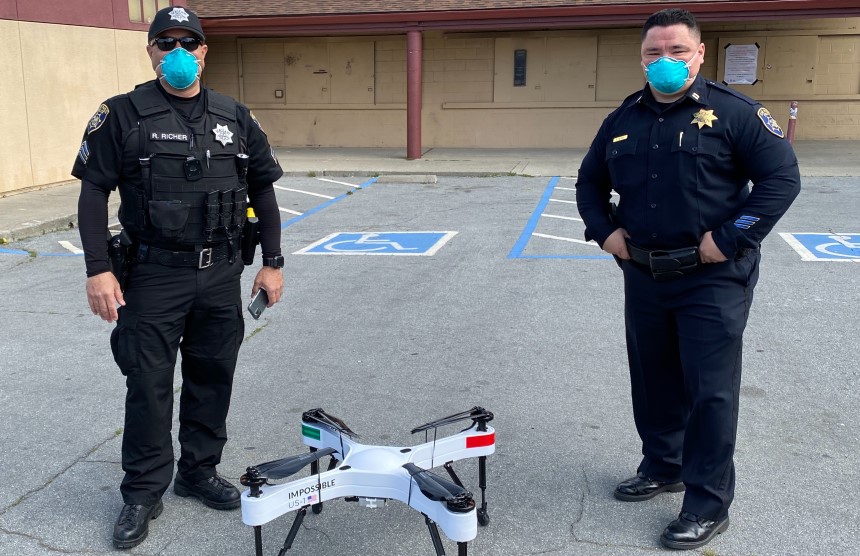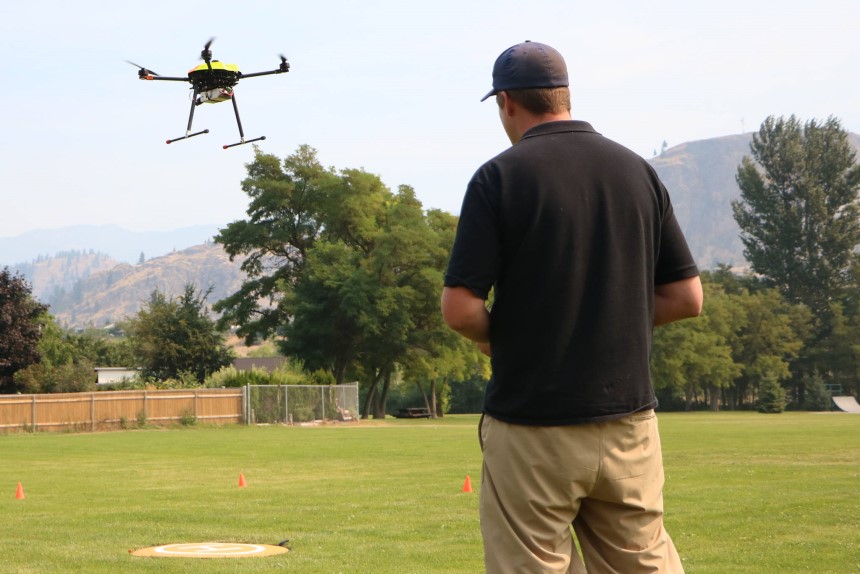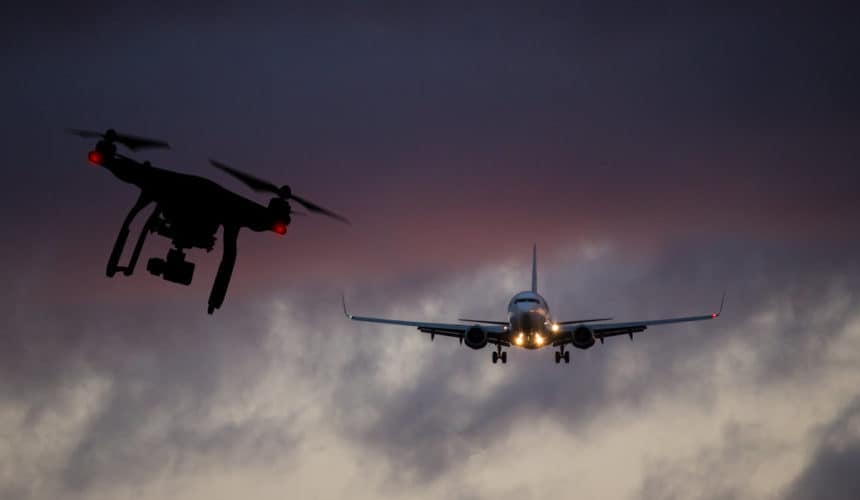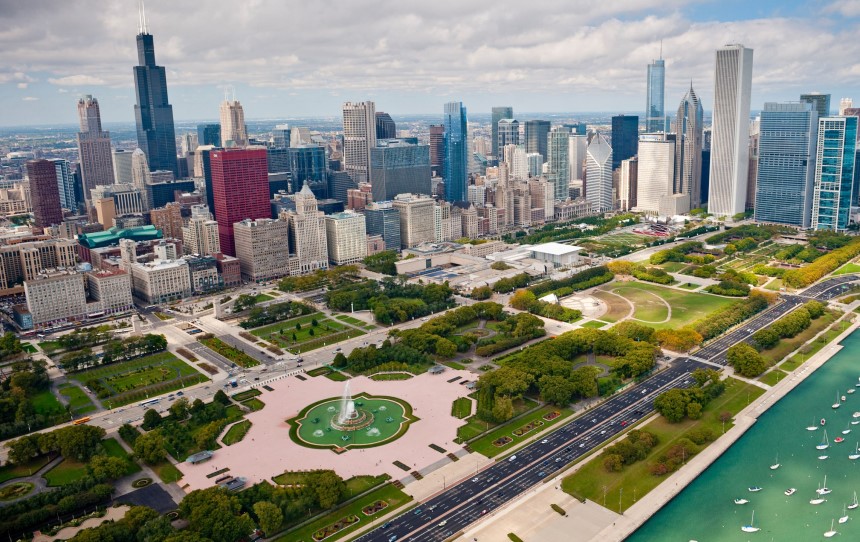Drones are a fun way to kill some time, and companies are finding uses for them. This has caused some debate over the safety of using them domestically Trusted Source A technoethical review of commercial drone use in the context of governance, ethics, and privacy | ScienceDirect In the last five years, the extension of drone use into commercial applications has grown exponentially apart from military and recreational domains. www.sciencedirect.com . Drone laws in Illinois were put into effect for the safety of others.
You may not know, but Illinois state drone laws vs. city laws can differ. If you want to get a drone for hobby and fly it safely and correctly in Illinois or throughout the country, you will need to learn these rules before you start flying. Keep reading and know some valuable information to get you started on what you need to know before you start flying.
Federal drone laws don’t just apply to Illinois; they apply to every state in the United States. You need to be a commercial pilot in Illinois to fly a drone.
As hobbyists in Illinois, you are required to take the FAA’s Recreational UAS Safety Test, where you will learn the rules for flying a drone. Doing so is necessary to fly a drone safely. One of the rules is that if your drone weighs over 0.5 pounds as Potensic T25, you’ll need to register it. There are also rules for safely flying it in areas that are not clear of sight.
As a government employee in Illinois, you may use a drone to perform certain activities, such as patrolling or serving as a firefighter or police officer.

Police agencies use UAVs for search and rescue, traffic collision reconstruction, crime scene analysis, and crowd monitoring.
State laws are all created by the General Assembly of Illinois.
SB 2937//2014 is a law that aims to give authorities more power when it comes to obtaining information from drones. This can be useful for emergency response teams and law enforcers. Law enforcement agencies must follow procedures that protect the privacy of drone owners.
HB 1652//2013 prohibits users from interfering with hunters or fishermen while flying their drones. You would think most hunters would shoot down the drone if it were bothering them.
SB 1587//2013 lets law enforcement agencies use drones to prevent a terrorist attack. A drone can also prevent suspects from escaping and help avoid an imminent threat. This is one of the ways drones have improved how we protect ourselves as a nation.
All drone pilots in Illinois are also required to obtain a Part 107 FAA license before piloting a drone anywhere in Illinois.
These are drone laws that apply to specific regions, cities, or counties in Illinois:
The FAA has updated its requirements for recreational pilots. Basically, they now require that pilots must pass an aeronautical test and provide a copy of their completed TRUST completion certificate.
In Illinois, drones weighing less than 55 pounds are required to be registered with the FAA. The registration fee is $5.

The recreational use of drones is the operation of unmanned or model aircraft for personal interest and enjoyment.
UAS operations in Illinois are approved by the Federal Aviation Administration under Part 107 of the FAA, but there are still some things you need to know before flying.
Commercial drone operators should avoid flying near airports since it is very difficult for manned planes to see and avoid drones. Drones are used to collect data.
Visual data Trusted Source Visual Inspections in Confined Spaces Are Known to Be Risky, Long, and Expensive — But They Don’t Have To Be | Flyability An indoor drone reduces the need for scaffolding, increasing your savings while also keeping your inspectors out of harm’s way. www.flyability.com is commonly collected. They fly over an area or an object of interest to collect details that are not visible to the human eye.
Thermal data is collected by drones after visual data. This type of data can help firefighters identify areas of interest for their investigations, roof inspections or inform others about potential issues with solar panels.
There are some great places to fly drones in Chicago legally. Below are some of them.
In 2012, the Federal Aviation Administration required drone operators to contact air traffic control or airport management if they operate within 5 miles of an airport.
If you are flying near an airport and would like to enter airspace that is not clearly defined, then you should contact the air traffic control tower or the operator of the airport.
Before you can fly, you will need to establish an operating procedure with the airport authorities. You will also have to answer some questions related to the duration of your flight.

Remember, you must not operate your drone in a way that creates a hazard to another aircraft.
Class G airspace is located at Montrose Beach. This means that pilots are free to fly as long as they follow the FAA’s rules and regulations. There is a lot of space out there for drones to fly in peace. You can use SYMA X500 4K Drone with a UHD camera to take stunning aerial shots or eye-catching videos from the sky.
Grant Park is an amazing place to visit in Chicago. One of the most notable features of the park is the Buckingham Fountain. This is also a great park to take drone shots with its stunning views of Lake Michigan and the city of Chicago on Christmas Eve.

Aerial view of Grant Park
Drone laws in Illinois may seem like a pain, but they are necessary. Who wants to be responsible for a plane crashing because they fly their drone too close to the airport?
The safety of yourself and others is essential to think about, so learn what you can before you start flying. Go and enjoy yourself flying a drone at Mont Rose Avenue Beach and be smart, or you could be charged with a civil penalty or a criminal offense. That’s one way to turn flying into a bad experience. We all want to enjoy ourselves flying. Take the test, become a commercial pilot, and start finding your love for flying. Who knows, you might take this into your next career in the police or fire departments.
All in all, we hope this article was helpful, and you’ll follow drone laws in Illinois!